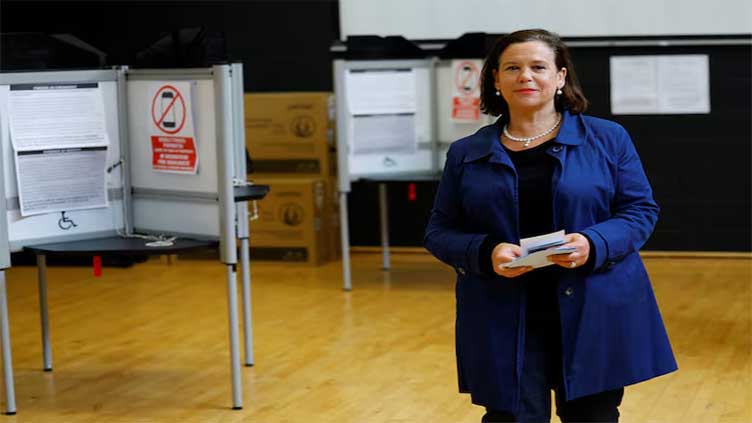Irish coalition parties hammer Sinn Fein in local elections

World
With most of the 949 seats filled, the outcome was far worse for Sinn Fein than polls suggested
DUBLIN (Reuters) – Ireland's two main coalition parties soundly beat Sinn Fein in local council elections on Sunday, a surprising and potentially devastating blow to the left-wing party's hope of its first victory in national elections due by March.
Sinn Fein, the former political wing of the Irish Republican Army, has recently seen a commanding three-year opinion poll lead disappear as more voters came to see immigration as their top concern rather than affordable housing, an issue which Sinn Fein dominated.
With most of the 949 seats filled, the outcome was far worse for Sinn Fein than polls suggested. Prime Minister Simon Harris' Fine Gael and his main coalition partner Fianna Fail each had 23% of the first-preference votes, with Sinn Fein getting 12%.
Sinn Fein was also well behind its two main rivals in the first of Ireland's three European election areas to declare partial results.
"There was a sense over the last number of weeks that there was a drop coming. To be quite frank nobody saw these results," senior Sinn Fein lawmaker Matt Carthy told RTE radio, adding he did not know what went wrong.
While Sinn Fein improved on the 9.5% its candidates secured at the last local poll in 2019, it landed nowhere near the poll-topping 25% won at the 2020 general election or the 35% it hit in opinion polls as recently as October.
Failing to enter government for the first time would be a setback to Sinn Fein's ambition of seeking a referendum on unifying with Northern Ireland, the British region where it is already the lead party.
"The idea that there's some kind of inevitability about Sinn Fein being in government is being shattered in these elections," Public Expenditure Minister Paschal Donohoe of the centre-right Fine Gael told reporters on Saturday.
Sinn Fein lawmakers expressed confidence in doing better in a national election, but their problem is that Fine Gael and Fianna Fail want to govern together again without them. Disrupting that plan would likely require Sinn Fein to achieve closer to 30% of the vote.
'SOUL SEARCHING'
While the coalition has struggled to deal with record levels of refugees, prompting Harris to toughen the country's stance since taking over as prime minister in April, Sinn Fein's Eoin O'Broin said the public were not clear where his party stood on the issue.
Sinn Fein has been caught between its traditional working-class voters who are more sceptical on the issue, and its newer, younger middle-class supporters concerned about migrants' rights.
O'Broin, the party's housing spokesperson, also said the lower turnout of 49% versus the 63% at the 2020 general election suggested Sinn Fein failed to get its voters out and had "an awful lot of work to do" to convince them to turn up next time.
Ireland's already large block of disparate independent candidates, many of whom have staked out the hardest lines on migration, captured 21% of the vote, a slight improvement on five years ago.
Analysts said the results may tempt Harris to call an election before March and seek to capitalise on Sinn Fein's struggles. Harris told reporters he had no such plans.
"We should show great caution into extrapolating anything into the future other than more volatility," said Theresa Reidy, senior lecturer in politics at University College Cork.
"But I suspect there will be a lot of Sinn Fein soul searching because they are not going to be a credible leader of an alternative government based on these figures."


